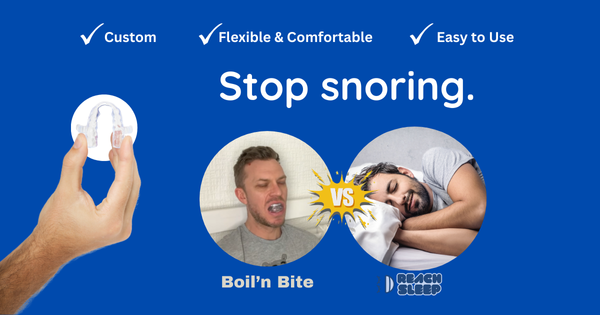Snoring is a common condition that occurs when airflow is partially obstructed while breathing during sleep, causing vibrations in the throat tissues. These vibrations produce the distinctive sound we know as snoring. While it’s often harmless, chronic snoring can disrupt sleep and may signal underlying health issues.
How Does Snoring Happen?
Snoring occurs when air cannot flow freely through the nose and throat during sleep. This partial obstruction causes the soft tissues in the upper airway—such as the tongue, soft palate, and uvula—to vibrate, leading to the sound of snoring. The severity of snoring can range from light and infrequent to loud and persistent.
What Causes Snoring?
Several factors can contribute to snoring. These include:
1. Anatomy of the Airway
- Nasal Congestion or Obstruction: A deviated septum, nasal polyps, or allergies can restrict airflow through the nose, forcing more air through the mouth and increasing the likelihood of snoring.
- Large Tonsils or Adenoids: Enlarged tonsils or adenoids can narrow the airway, particularly in children.
- Obesity: Excess fat around the neck can compress the airway and lead to snoring.
- Small or Recessed Jaw: Certain jaw shapes or sizes can result in a narrower airway.
2. Sleeping Position
- Sleeping on your back can cause the tongue to fall backward and partially block the airway, increasing the risk of snoring.
3. Age
- As we age, the muscles in the throat naturally weaken, which can make snoring more common.
4. Alcohol and Sedatives
- Consuming alcohol or sedatives before bed relaxes the throat muscles, making it more likely for tissues to collapse and obstruct airflow.
5. Smoking
- Smoking irritates the airways, causing inflammation and increased mucus production, which can lead to snoring.
6. Sleep Apnea
- Snoring can be a symptom of obstructive sleep apnea (OSA), a serious sleep disorder where the airway becomes completely blocked during sleep, leading to pauses in breathing and fragmented sleep.
7. Nasal or Sinus Issues
- Colds, sinus infections, and allergies can temporarily block the nasal passages, causing snoring.
When is Snoring a Concern?
While occasional snoring is usually harmless, chronic snoring can disrupt sleep and affect overall health. It may also indicate sleep apnea, which is associated with serious conditions like high blood pressure, heart disease, and diabetes. Signs that snoring might require medical attention include:
- Loud, persistent snoring.
- Choking or gasping during sleep.
- Excessive daytime sleepiness.
- Morning headaches or dry mouth.
How to Address Snoring
There are several ways to manage or reduce snoring, depending on its cause:
- Lifestyle Changes: Losing weight, avoiding alcohol, and quitting smoking can significantly reduce snoring.
- Sleeping Position: Sleeping on your side instead of your back may help keep your airway open.
- Nasal Strips or Dilators: These can improve airflow through the nose.
- Oral Appliances: Custom oral devices can help reposition the jaw and tongue to keep the airway open.
- Medical Interventions: For severe cases, treatments like continuous positive airway pressure (CPAP) therapy, surgery, or other medical devices may be necessary.
Final Thoughts
Snoring is more than just a nighttime nuisance—it can impact the quality of your sleep and even your health. Understanding the causes of snoring can help you take the right steps to address it and ensure better rest for you and those around you. If you’re concerned about persistent snoring, consider consulting a healthcare provider for further evaluation.




